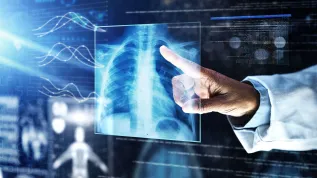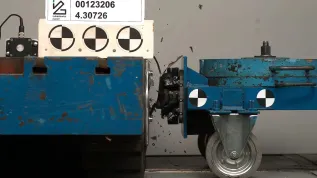
Grand Prize of the Jury, 19 gold medals with distinction and four medals in the "Young Inventor" category won Polish inventors 62nd World Exhibition "Brussels Innova" 2013 in Brussels.
Furthermore, Polish women researchers received the prestigious World Intellectual Property Organization (WIPO) Award for women-inventors for the "Bioactive composite and production method", i.e. artificial bone. It was developed by Grażyna Ginalska, Anna Belcarz, Anna Ślósarczyk and Zofia Paszkiewicz of Medical Inventi Sp. z o.o. The exhibition ended last Saturday.
Grand Prize of the Jury went to the team from the Department of Anatomy, Faculty of Medical Sciences, University of Warmia and Mazury in Olsztyn, and the Faculty of Mathematics and Computer Science, Nicolaus Copernicus University in Toruń for the "Interactive fusion system of multiple 3D data as a surgical preoperative strategy and educational tool". This tool can be used, for example, to design surgical procedures and biopsy. Its creators are: Jerzy Gielecki, Michał Chlebiej, Anna Żurada and Andrzej Rutkowski.
62nd World Exhibition on Inventions, Research and New Technologies "Brussels Innova" 2013 took place from 14 to 16 November. The event was attended by Polish exhibitors and exhibitors from 13 other countries, including France, Italy, Croatia, Iran and Russia. They presented 230 innovative solutions in the field of medicine, computer science, chemistry, biology and electronics.
At the exhibition, Polish exhibitors presented 93 inventions that were submitted to the EUREKA contest, and evaluated by a panel of 90 experts.
The jury awarded gold medal with mention to the team from the Institute of Genetics and Animal Breeding, Polish Academy of Sciences and SGGW-WULS in Warsaw for the method of producing pork products with controlled allergenicity.
The jury also awarded scientists from the Department of Multimedia Systems at the Faculty of Electronics, Telecommunications and Informatics, Gdańsk University of Technology for the Cyber Eye System. It tests whether patients diagnosed as being in a vegetative state are aware. The system consists of a visual tracking module, a special helmet with electrodes, which measures the activity of individual parts of the brain, and an odour-generating device. Cyber Eye also contains a range of exercises for patients.
Gold medal with honors also went to Talking Maps, Android app that helps the blind navigate the city. It was developed in the Department of Geoinformatics at the Faculty of Electronics, Telecommunications and Informatics, Gdańsk University of Technology in cooperation with the Regional Geodesy and Cartographic Enterprise "OPEGIEKA" Sp. z o.o.
Researchers from the Centre for Biomedical Engineering at the Silesian University of Technology and the Institute of Medical Technology and Equipment ITAM were awarded for a system that allows to assess the condition of the wound and helps control the healing progress.
The jury also awarded gold medal with mention to researchers from the Mossakowski Medical Research Centre PAS and the Oncology Centre in Warsaw for a new type of pain medication designed especially for the treatment of chronic cancer pain.
The jury awarded four gold medals to Polish inventors in the Young Inventor category, including the medal for the "Torch for the blind". It helps people with disabilities move around. The invention uses sound signals to tell the user on which side and how far an obstacle is. The solution was developed in the King John III Sobieski Secondary School No. 6 in Jastrzębie Zdrój and the Practical Training Centre in Jastrzębie Zdrój.
"Glove supporting communication" also gained the recognition of the judges. The device is designed for the dumb. It synthesises human speech on the basis of statements made by the user who performs hand movements. The "glove" was developed at Prof. J. Groszkowski School of Electrical Engineering in Białystok.
The jury also awarded the project "Wanted Clock - lost persons finder", a watch for patients with Alzheimer\'s disease and those suffering from memory disorders. When a sick person gets lost, the caretaker calls the number assigned to the watch and after 30 seconds he receives a response message with a link that contains the exact location. The device was developed at the Technical Electronic School in Połaniec.
Also awarded was "Grip aid", which increases the reliability and strength of grip of a human hand, and protects against mechanical injury and burns. It can be used by firefighters, engineers or metal workers. The project was developed in the General Władysław Sikorski Technical Research Plant in Częstochowa.
PAP - Science and Scholarship in Poland
jhp/ akl/ as/ mrt/
tr. RL













